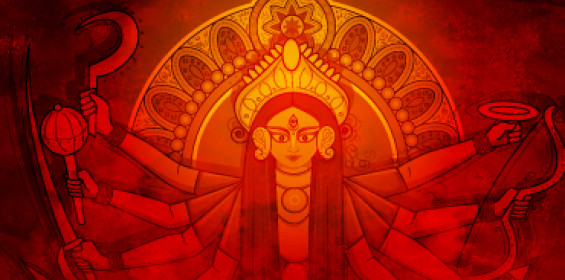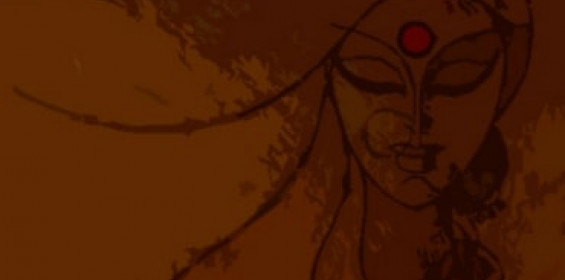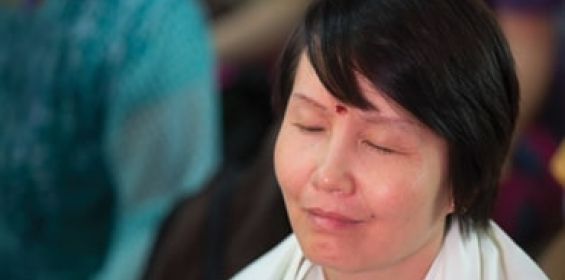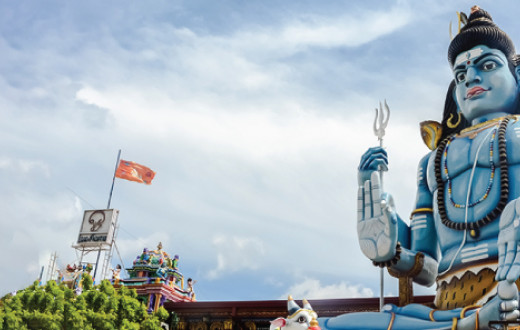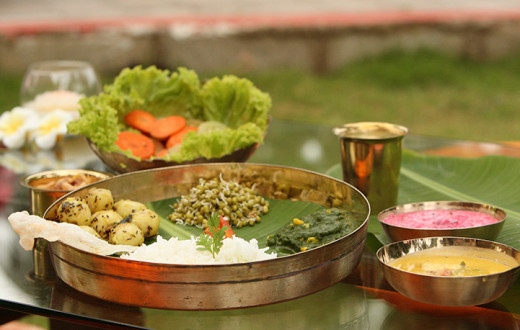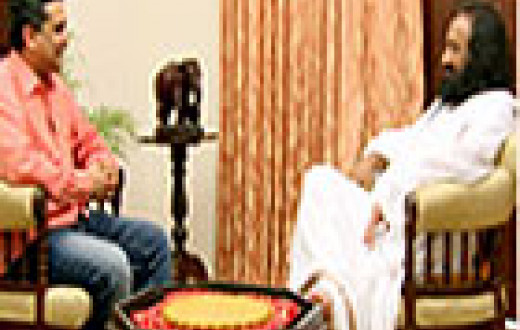Somanna and his mother are in bed getting ready for story time just before the usual nocturnal activity. As an annual holiday approaches, they discuss Basavanna or Basaveshwara and his life story.
Amma, why do I have to go to sleep so soon? It’s holiday time!
I know, but you know you are fresher when you get your eight hours between 11 and 7, right?
Okay then, at least tell me a story.
What shall I tell you about today?
You already told me Ramayana and Mahabharata…so, tell me something new tonight.
Okay, you know, I was looking through your almanac and there is a holiday coming up.
Well, it makes no difference to me as I don’t have online classes now. But I will tell Anant. He does.
It won’t change his class schedule though.
Why Amma?
Because it falls on a Sunday.
Oh, then he missed a holiday.
Do you know which holiday it is, Somanna?
(Picks up his almanac) Ba-sa-va-nna Jayanti.
Yes. In 2020, Basavanna Jayanti falls on April 26th.
That means it is the birthday of Basavanna, Amma?
Yes, that’s correct.
But who is Basavanna, Amma?
Good question. Lord Basavanna or Lord Basaveshwara is known as the founder of the Lingayat parampara (tradition). He was a philosopher and statesman.
Is he still alive?
No, no. He lived in the 12th century CE.
Oh! So long ago. And people still remember him.
Yes, particularly the Lingayats look up to him as the Divine.
Who are the Lingayats, Amma?
Lingayats (from the word ‘linga’, which is the mark of the formless Shiva ) are a group who follow Shaivism as a parampara (tradition). Shaivism means…
I know - people who follow Lord Shiva, Amma.
Correct!
But how come he has a separate holiday for his birthday like Mahatma Gandhi. Not that I’m complaining!
That should tell you what an exceptional person he was - to have a public holiday on your birthday is not a small thing. But there is something even more extraordinary than that!
What, Amma?
It is also uncommon to have ‘Eshwara’ added to your name as an honorific. Very few have – Lord Shiva is referred to as Maheshwara, Shani Bhagawan is called Shaneeshwara and very occasionally Lord Krishna is referred to as Gopeshwara. So, for Basava to be known as Basaveshwara speaks volumes of the reverence people have for him.
I guess he must have been a very special sort of person.
Yes, he was a thinker and a socio-religious reformer, who questioned established practices. You know there were some practices in vogue at the time that were archaic. He shunned some rituals that were past their time and established more popular practices that touched the hearts of the people.
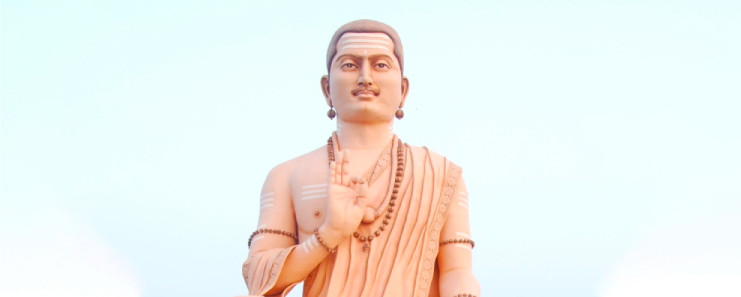
What kind of practices was he against, Amma?
Well, he was against discrimination and differentiation. He fought for people to be treated equally. To him, Work was Worship. He believed in dignity of labour firmly stating that no job was menial. He also fought against atrocities committed against women.
Wow! That’s a lot of causes to fight for. No wonder he is referred to as ‘Eshwara’- and after so many centuries. He sounds like a trailblazer.
Yes, he was. Would you like to know more about the life story of Lord Basaveshwara, Somanna?
Yes, tell me more about him, Amma: his childhood, where he studied and his teenage years.
Well, Basavanna was born in a town called Basavan Bagewadi in the district of Bijapur in North Karnataka to Madaras and Madalambike. He had an elder sister, Nagamma to whom he was quite attached. Just like you are to your elder sister.
We’re similar then! But, Basava is an unusual name, Amma.
But it was apt for Him, Somanna. Basava was looked up to as the avatar of Nandi, the bull, Lord Shiva’s vahana (mount). But ‘Nandi’ itself has a deeper meaning, Somanna. ‘Nandi’ means the physical body that one has to transcend to be able to experience the Divine Shiva. So, Nandi, the body is considered an obstacle to realizing the Divine. Basava was one of those who was able to transcend His body and reach gyanam (deep spiritual knowledge). This is, again, very rare.
Isn’t our cultural heritage fascinating? Equally intriguing is our tradition of healing and health. Thousands of years ago, our ancient sages unlocked techniques and wisdom to maintain holistic health. Know more about these secrets at The Art of Living Meditation and Breath Program.
Discover India's spiritual heritage and learn about the mind & breath. I'd like to know more>>
That’s pretty deep, Amma. But, it seems like he was meant to found Shaivism.
A type of Shaivism, yes, it does, doesn’t it? Both his parents were devout people. His father was a kind and religious man, who engaged in charity and philanthropy and was a popular man in society. However, at the age of 8 years, Basava left home.
Oh, why did he leave so early?
He wanted answers to questions he had on practices that were followed. He did not like blind beliefs and, what he felt were, meaningless rituals.
But at such a young age, where did he go?
He went to a Gurukula at Sangamesh Ashrama at Kudala Sangama. Eeshanya Guru was the head there. The Guru imparted free education, disbursed free food and dispensed free medicine to people of all religions. This was a huge influence in the life of young Basava. He stayed with the Guru for 10 years and learnt the Vedas, Puranas and Shastras as well as Sanskrit and Kannada.
What did he do after his studies? Did he have a job?
Yes, he started his career as an accountant in the Durbar, the court of the king. With his hard work, abilities and perseverance, he worked his way up the ranks to become the prime minister. He established a very interesting assembly called the Anubhava Mantapa, the Spiritual Parliament. People from all walks of life could come here and discuss various social, economic and spiritual issues. Also, since he was a poet, he composed poems in local Kannada language and spread his message through them.
I haven’t heard of any of his poems, Amma.
He wrote them in the local language, Somanna. I hope you will, one day, read them. Káyakavé Kailása (work is worship) is one of his famous poems written in Kannada. The singular aspect of Basaveshwara was that not only did he have a great vision and message for the world but he could also pass it on to the masses. Without the ability to communicate your vision, it can never become a reality. He had the special gift of being able to speak the language of the common man and so, was able to reach out to them. This is what made him extraordinary. Very few people can pass on their learnings to others and in such simple terms.
So, what were Basavanna’s teachings and vision, Amma?
Well, Basaveshwara’s vision was universal brotherhood, unity of mankind, compassion, and equality irrespective of gender, religion, and language. He lived in a time when people were burdened by rituals. He helped unshackle them from those local rituals.
Here is a translation of one of Basavanna’s quotes:
Don't rob, don't kill, never lie.
Don't get angry, or think negative things about others.
Don't praise yourself or tease others.
This is the way of self-respect, and also the way to be respected by the world.
This is the way of impressing my Lord Koodala Sangam Deva.
Medieval society was ridden by these evils and so his teachings were very relevant to the time. And if you think about it, it is relevant today also.
But Amma, I have a question. I don’t think we had a holiday on the same day last year. How come?
That’s because Basavanna Jayanti falls on the third day of the Vaisakha month. Vaisakha month is the second month of the Chandramana calendar (based on the moon) followed in India and hence Karnataka too. This is different from the Gregorian calendar, and so does not fall on the same day every year.
But Amma, Shweta doesn’t have a holiday. Isn’t it a holiday in Tamil Nadu?
No. This is a state holiday only in Karnataka, Andhra Pradesh, Telangana, and Maharashtra. The Lingayats in these states celebrate this day to honor the birth of their great leader.
But how do people celebrate Basava Jayanti, Amma? I don’t recall seeing anything special happening on this day.
It is celebrated in various parts of our state like Shivamogga and Bijapur where he hails from. People carry his garlanded photo in a procession, where folk songs and dances on his life story are sung and enacted. Lectures are also arranged so people remember this great man.
I think I will remember this day more now, Amma. I’m glad we have honored this great man to this day. He really does deserve a holiday to be remembered by.
I’m glad you feel this way.
I hope I can grow up and be a social reformer like him, Amma.
May your dream always be this honorable, Somanna! Speaking of dreams, you must now visit your own private world of dreams! Sweet Dreams!
Good Night, Amma! Think of another fun story for me tomorrow.
I will. Good Night!
Based on inputs from articles written by DK Hari and DK Hema Hari, authors and founders, Bharath Gyan.
For more information on India, you can follow the founders of Bharath Gyan on Twitter @bharathgyan
We’d love to hear from you.
Leave your comments @artofliving

